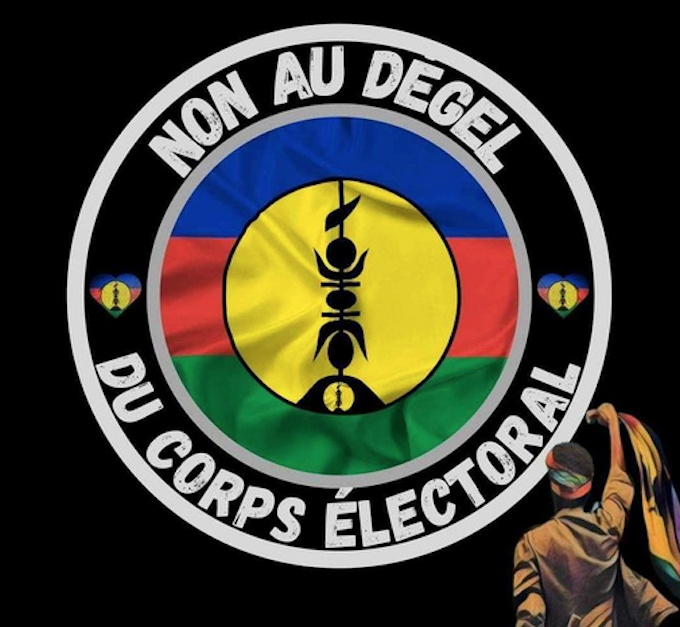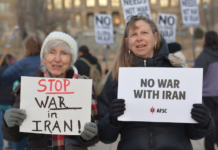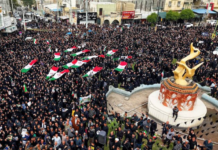
A Pacific civil society alliance has condemned French neocolonial policies in Kanaky New Caledonia, saying Paris is set on “maintaining the status quo” and denying the indigenous Kanak people their inalienable right to self-determination.
The Pacific Regional Non-Governmental Organisations (PRNGOs) Alliance, representing some 15 groups, said in a statement that it reaffirmed its solidarity with the Kanaks in a bid to to expose ongoing efforts by the French government to “derail a decolonisation process painstakingly pursued in this Pacific Island territory for the last 30 years”.
It said that France — especially under the Macron government — as the colonial power administering this UN-sanctioned process of decolonisation had repeatedly shown that it
could not remain a “neutral party” to the Noumea Accords.
The 1998 pact was designed specifically to hand sovereignty back to the people of Kanaky New Caledonia and end French colonial rule, said PRNGOs.
“In recent months, the Macron government [has] forced through proposed constitutional
amendments aimed at changing voting eligibility rules for local elections in the French
territory,” said the statement.
“These eligibility provisions have been preserved and protected under the [Noumea] Accords as a safeguard for indigenous peoples against demographic changes that could make them a minority in their own land and block the path to freedom.”
The electoral amendments were passed by the French Senate in early April and
will be voted on in Parliament this month.
Elections deferred
“The Macron government has, in a parallel move, also managed to defer local elections,
initially scheduled for mid-May, to mid-December at the latest, to allow voting under new
provisions that would favour pro-French parties,” the statement said.
In 2021, President Macron unilaterally called for the third independence referendum to be
held in December that year amid the covid-19 pandemic that “heavily affected the
ability of indigenous communities to organise and participate”.
Although it was a “no” vote, only 43.87 percent of the 184,364 registered voters exercised their right to vote.
“Express reservations and requests by Kanak leaders and representatives for a later date were ignored, casting serious doubt on genuine representation and participation,” said PRNGOs.
A Pacific Islands Forum Mission sent to observe proceedings concluded in its report that “the self-determination referendum that took place 12 December 2021 did so with the non-participation of the overwhelming majority of the indigenous people of New Caledonia.
“The result of the referendum is an inaccurate representation of the will of registered voters . . . ”
The alliance said that in all of these actions, the French government had shown no interest at all in respecting the Noumea Accords or in granting the Kanak people their most fundamental rights — “particularly the right to be free”.
‘Democracy’ link claimed
Macron’s allies and pro-French advocates have claimed that these initiatives by the
French government are more consistent with democratic principles and the rule of law.
The aspirations of the Kanak people for self-determination had been
“mischaracterised as being ethno-nationalistic, akin to the ‘far-right’, and racist,” PRNGOs said.
The alliance said that if the vote on May 13 succeeded in removing the electoral roll restrictions succeed, it would be seen as a direct attack on the principle of the right to self-determination enshrined in the UN Charter and its Declaration on the Rights of Indigenous People.
“That the evil of colonialism can continue unchecked in this manner, and in this 21st century, is not only an insult to the Pacific region but to the international system,” the statement said.
“The Pacific is not distracted by French false narratives. The Kanak, as people, are the rightful inhabitants of what is present day New Caledonia still under enduring French colonial rule.”
The alliance called on President Macron to withdraw the constitutional changes on electoral roll provisions protecting the rights of the indigenous people of Kanaky, and it appealed to France to send a neutral high-level mission to resume dialogue between pro-independence parties and local anti-independence groups over a new political agreement.
It also called for another independence referendum that “genuinely reflects their will”.














































